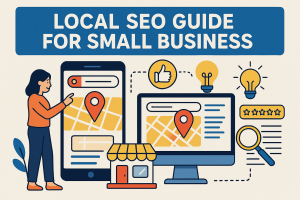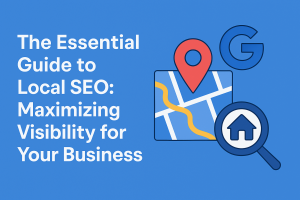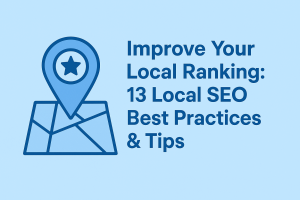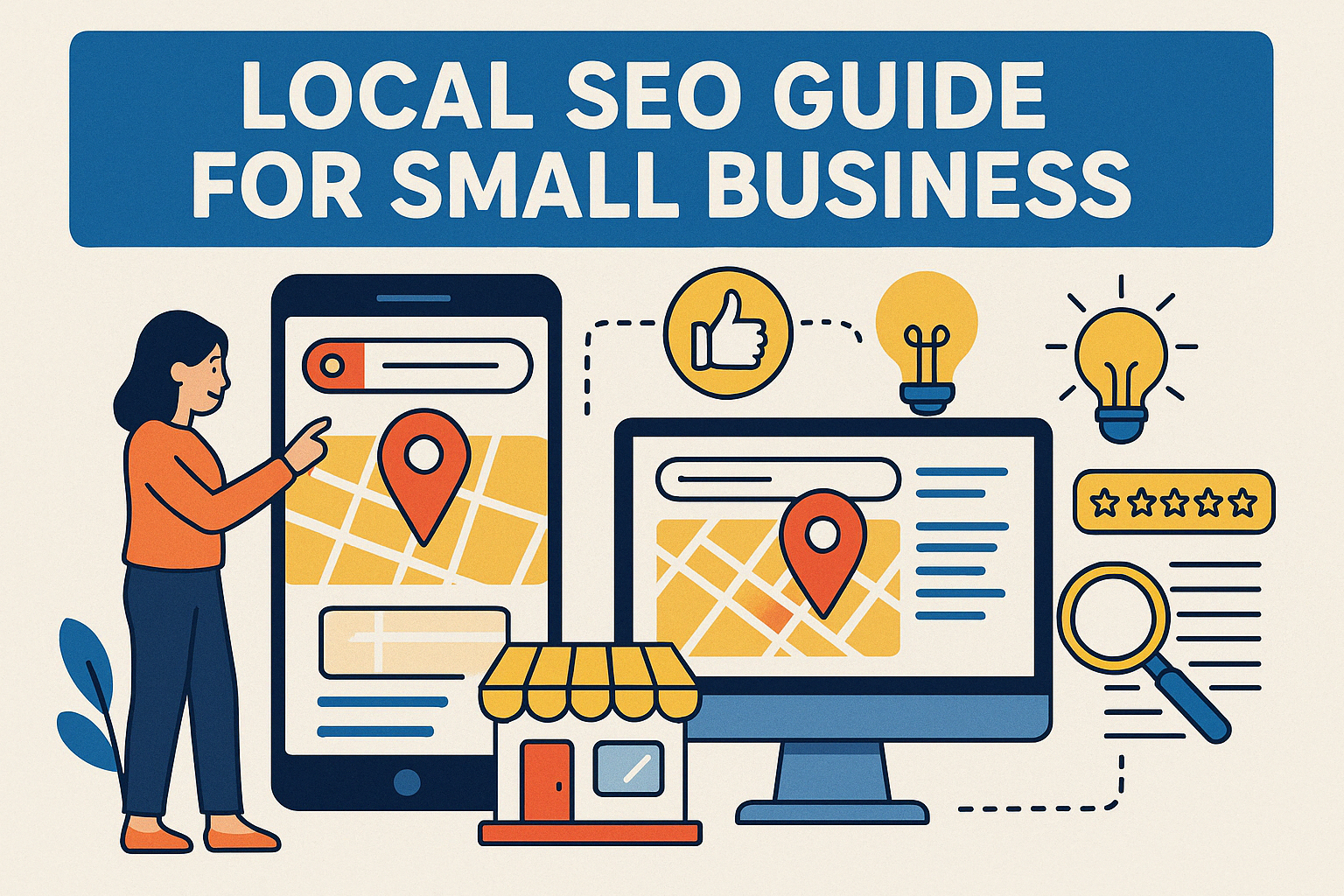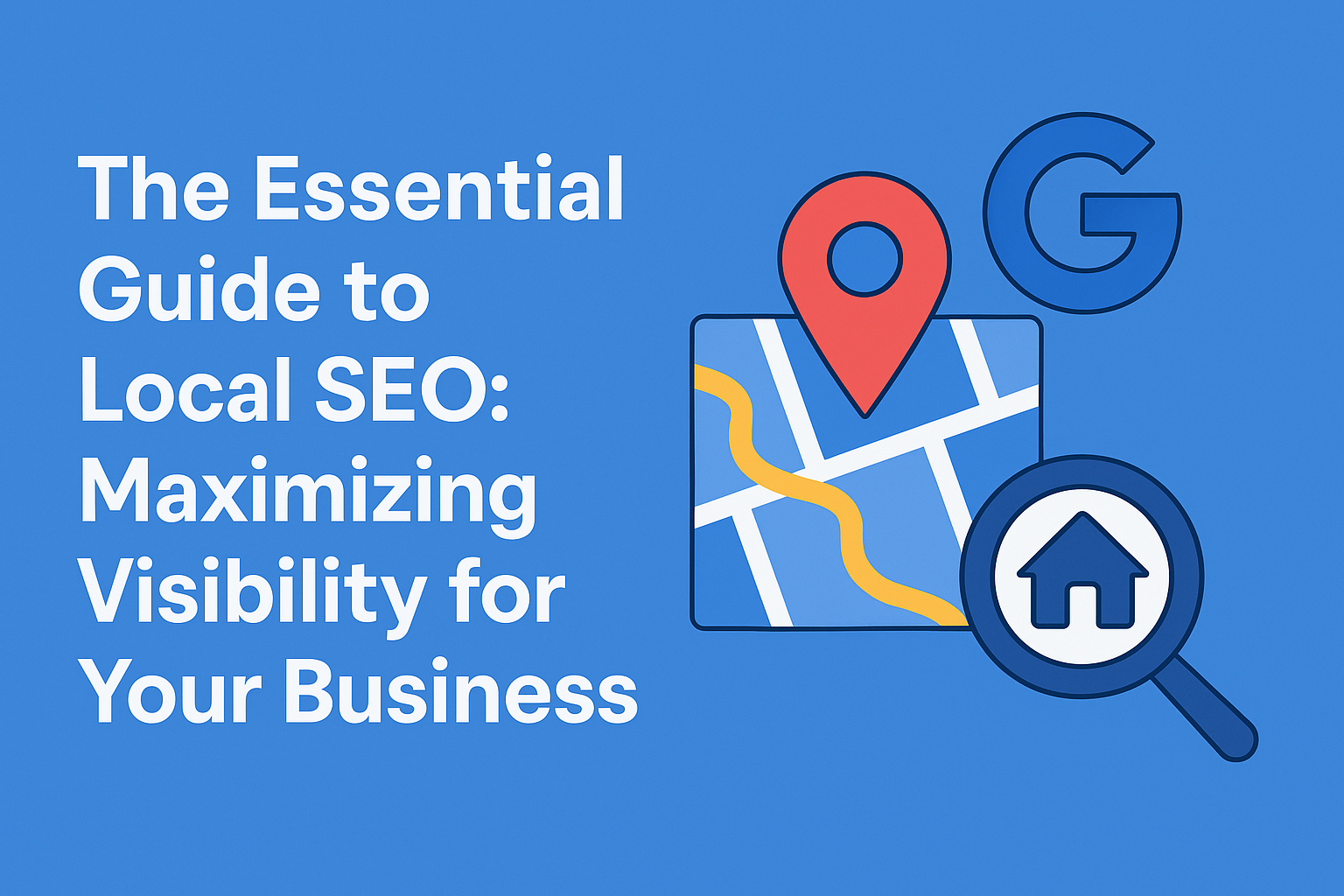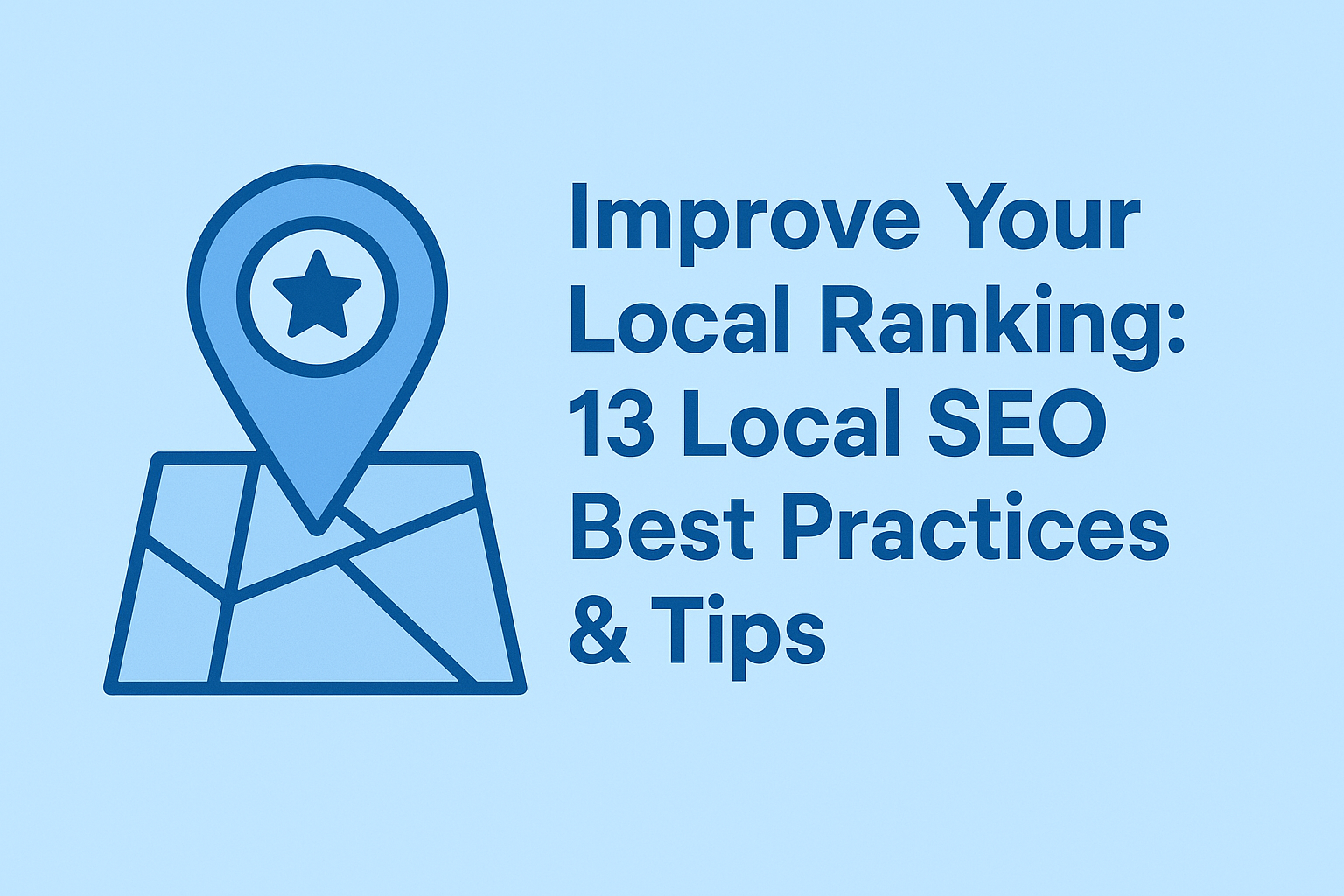Unleashing the Power of Real Estate SEO: A Guide to Rank Higher and Generate Leads

In today’s digital age, where the majority of homebuyers and sellers turn to the internet to search for properties and real estate agents, having a strong online presence is crucial for success in the competitive real estate market. That’s where Real Estate search engine optimization (SEO) comes into play.
But, why is search engine optimization important for real estate professionals? The answer lies in the power of online visibility. When potential buyers or sellers search for real estate-related information, they often rely on search engines like Google, Bing, or Yahoo to find what they need.
By optimizing your real estate website for search engines, you can increase its chances of appearing on the first page of search results, where most users tend to click.
This guide will take you on a journey to unlock the potential of real estate SEO. We will delve into various aspects, from understanding the fundamentals of SEO and the importance of using real estate-specific keywords, to optimizing search engines for local SEO, catering specifically to real estate agents.
Real estate SEO keywords will play a vital role in driving targeted traffic to your website. We’ll explore effective techniques for conducting keyword research, identifying relevant terms that potential clients are searching for, and incorporating them strategically into your website content.
Moreover, we will explore the significance of local SEO for real estate agents. Local SEO allows you to target a specific geographical area, ensuring that your website appears prominently in local search results.
Ultimately, this guide aims to equip you with the knowledge and tools to not only rank higher on real estate search engines in the US but also generate a steady stream of leads.
We’ll delve into conversion rate optimization techniques, the implementation of lead capture forms and landing pages, and effective methods to engage with prospects through personalized content.
So, are you ready to unleash the power of real estate SEO? Let’s dive in and discover how optimizing search engines can elevate your online presence, attract more visitors, and ultimately, boost your success in the competitive real estate market.
To embark on our journey of understanding real estate SEO, let’s start by defining what SEO is and exploring its key components.
What is Search Engine Optimization?
Search Engine Optimization (SEO) refers to the practice of optimizing a website to improve its visibility and ranking on search engine results pages (SERPs). The goal is to attract organic (non-paid) traffic by ensuring that your website appears higher in search results when users search for relevant keywords or phrases.
The key components of SEO include:
On-Page Optimization:
This involves optimizing various elements on your website to make it more search engine-friendly. It includes optimizing meta tags (title, description), header tags, URL structure, image alt tags, and improving website speed and mobile responsiveness. On-page optimization ensures that search engines can understand and index your website’s content effectively.
Off-Page Optimization:
While on-page optimization focuses on improving your website’s structure and content, off-page optimization deals with external factors that influence your website’s visibility. This primarily includes building high-quality backlinks from other reputable websites to enhance your website’s authority and credibility in the eyes of search engines.
Keyword Research:
Keywords are the terms or phrases that users enter into search engines when looking for specific information. Keyword research involves identifying relevant keywords related to the real estate industry that potential clients are likely to use in their searches. By targeting the right keywords, you can optimize your website’s content and improve its chances of ranking higher in search results.
The Role of Keywords in Real Estate SEO
Keywords play a crucial role in real estate SEO. By incorporating relevant keywords into your website’s content, you can increase its visibility and attract targeted traffic.
When conducting keyword research for real estate, it’s important to consider both broad and long-tail keywords. Broad keywords, such as “real estate” or “homes for sale,” have high search volumes but also high competition.
Long-tail keywords, on the other hand, are more specific phrases that usually have lower search volumes but also lower competition.
Examples of long-tail keywords in the real estate industry could be “luxury homes for sale in Los Angeles” or “condos for rent in Miami Beach.”
By optimizing your website’s content with a mix of broad and long-tail keywords, you can capture a wider range of potential clients and increase your chances of ranking higher in relevant search results.
On-Page Optimization Techniques for Real Estate Websites
On-page optimization techniques are crucial for improving your website’s visibility and search engine rankings. Here are some key techniques specific to real estate websites:
Quality Content Creation:
Create high-quality, informative, and engaging content that addresses the needs and interests of your target audience. Incorporate relevant keywords naturally into your content while ensuring it remains valuable and user-friendly.
Meta Tags Optimization:
Optimize your meta tags, including the title tag and meta description, with relevant keywords. These tags provide concise summaries of your web page content and appear in search results, influencing users’ decision to click on your website.
URL Structure:
Ensure your website’s URL structure is clean, concise, and includes relevant keywords. Use hyphens to separate words in URLs, making them more readable and search engine-friendly.
Header Tags:
Use header tags (H1, H2, H3, etc.) to structure your content and highlight important sections. Incorporate relevant keywords naturally within header tags to signal the relevance of your content to search engines.
Image Optimization:
Optimize your website’s images by using descriptive file names and alt tags that include relevant keywords. This helps search engines understand the content of your images and improves accessibility for users.
Off-Page Optimization Strategies to Improve Search Rankings
Off-page optimization plays a crucial role in real estate SEO as it focuses on improving your website’s visibility and authority beyond its own pages. Here are some effective off-page optimization strategies:
Link Building:
Build high-quality backlinks from reputable and relevant websites. Seek opportunities for guest blogging, collaborations, and partnerships with other real estate professionals or industry influencers. These backlinks signal to search engines that your website is trustworthy and valuable, leading to higher search rankings.
Online Directories and Listings:
Submit your website to reputable online directories and listings that are specific to the real estate industry. This helps improve your online visibility, particularly for local SEO.
Social Media Engagement:
Engage actively on social media platforms to promote your real estate business and share valuable content. Encourage users to share and link back to your website, increasing its visibility and generating more traffic.
Online Reviews and Testimonials:
Encourage satisfied clients to leave positive reviews and testimonials on popular review platforms and your website. Positive reviews not only boost your credibility but also improve your search engine rankings.
Social Bookmarking:
Share your website’s content on social bookmarking platforms to increase its visibility and reach a wider audience. This can attract more traffic and potentially lead to backlinks from interested users.
Influencer Marketing:
Collaborate with real estate influencers or industry experts to promote your website and gain exposure to their audience. This can significantly enhance your website’s visibility and credibility.
Resources and Tools for Ongoing SEO Success
To achieve ongoing SEO success in real estate, consider utilizing the following resources and tools:
Google Analytics:
A powerful analytics tool that provides valuable insights into website traffic, user behavior, and conversion rates. It helps you track the effectiveness of your SEO efforts and make data-driven decisions.
Google Search Console:
This tool helps monitor and optimize your website’s presence in Google search results. It provides data on search performance, crawl errors, indexing status, and more.
SEMrush:
An all-in-one SEO toolkit that offers keyword research, competitor analysis, backlink analysis, and rank tracking features. It provides valuable insights to improve your SEO strategies.
Moz:
Moz offers a suite of SEO tools, including keyword research, link analysis, on-page optimization, and rank tracking. It also provides educational resources and industry insights.
Ahrefs:
A comprehensive SEO toolset that includes features like keyword research, backlink analysis, content exploration, and rank tracking. It helps you identify SEO opportunities and track your progress.
Real Estate Industry Blogs:
Follow reputable real estate industry blogs like Inman, Zillow Porchlight, and Realtor.com for the latest trends, news, and insights specific to the real estate industry.
SEO Forums and Communities:
Engage with SEO professionals and enthusiasts in forums and communities like Moz Community, Warrior Forum, and Reddit’s SEO subreddit. These platforms provide a wealth of knowledge, discussions, and opportunities for networking.
Tips for Staying Ahead of the Competition in real estate industry
To stay ahead of the competition in real estate SEO, consider the following tips:
Stay Updated with SEO Trends:
SEO is constantly evolving, and staying updated with the latest trends and algorithm changes is crucial. Follow reputable SEO blogs, attend industry conferences, and join online communities to stay informed about new strategies and best practices.
Analyze Competitor Strategies:
Keep a close eye on your competitors’ SEO strategies. Analyze their website structure, content, keywords, and backlink profiles. Identify what is working well for them and find opportunities to differentiate yourself by offering unique value to your audience.
Enhance User Experience:
Search engines prioritize websites that provide a positive user experience. Focus on improving website speed, navigation, and mobile responsiveness. Optimize your website’s design and layout to be user-friendly and intuitive. Engage users with high-quality, relevant content that meets their needs.
Utilize Local SEO:
Real estate is often location-specific, so optimizing for local SEO is essential. Claim and optimize your Google My Business listing, include local keywords in your content, and participate in local directories and community events. This will help you capture local search traffic and establish your presence in the local market.
Invest in Content Marketing:
Content marketing is a powerful tool for real estate SEO. Create valuable, informative, and engaging content that addresses your target audience’s pain points and interests. Regularly publish blog posts, videos, infographics, and guides to establish yourself as an authority in the real estate industry.
Leverage Social Media:
Social media platforms provide opportunities to engage with your audience, share your content, and build brand awareness. Utilize platforms like Facebook, Instagram, Twitter, and LinkedIn to connect with potential clients, share updates, and drive traffic to your website.
Conclusion:
In conclusion, real estate search engine optimization (SEO) holds immense power in today’s digital landscape. By optimizing search engines, incorporating real estate SEO keywords, and understanding the importance of search engine optimization, you can elevate your online presence, attract targeted traffic, and generate valuable leads.
Throughout this guide, we have explored the key components of real estate SEO, starting with its definition and the crucial role of keywords. We have learned the significance of on-page optimization techniques, such as quality content creation, meta tags optimization, URL structure, header tags, image optimization, and mobile optimization.
Moreover, we have delved into off-page optimization strategies, including link building, online directories and listings, social media engagement, online reviews and testimonials, social bookmarking, and influencer marketing. These strategies help improve your website’s authority, visibility, and search rankings, enabling you to outshine your competitors.
We have also discussed the importance of staying ahead of the competition by staying updated with SEO trends, analyzing competitor strategies, enhancing user experience, utilizing local SEO for real estate agents, investing in content marketing, and leveraging social media platforms.
To ensure ongoing SEO success, we have recommended valuable resources and tools, such as Google Analytics, Google Search Console, SEMrush, Moz, Ahrefs, real estate industry blogs, SEO forums, and communities. These resources and tools empower you to track performance, conduct keyword research, analyze competition, and make data-driven decisions.
Remember, search engine optimization is an ever-evolving field, so continue to stay updated, adapt your strategies, and explore new opportunities. Embrace the power of local SEO for real estate agents to capture the attention of your local market. Engage with your audience through valuable content and social media channels. Utilize the recommended resources and tools to refine your approach and measure your success.
So, take the knowledge gained from this guide, apply it to your SEO efforts, and watch as your visibility, leads, and success soar in the realm of real estate search engines in the US.
FAQs
Why is search engine optimization important for real estate professionals?
Search engine optimization is important for real estate professionals because the majority of homebuyers and sellers rely on search engines to find properties and real estate agents. By optimizing their websites for search engines, real estate professionals can increase their visibility, attract targeted traffic, and generate valuable leads.
How do real estate SEO keywords play a role in optimizing search engines?
Real estate SEO keywords are crucial for optimizing search engines. By conducting keyword research and identifying relevant terms that potential clients are searching for, real estate professionals can incorporate these keywords strategically into their website content. This helps search engines understand the relevance of the website to specific search queries and improves its chances of appearing higher in search results.
What is local SEO, and why is it important for real estate agents?
Local SEO is a subset of search engine optimization that focuses on optimizing a website’s visibility in local search results. For real estate agents, local SEO is essential because real estate is often location-specific. By utilizing local SEO strategies, such as claiming and optimizing Google My Business listings, targeting location-specific keywords, and participating in local directories and community events, real estate agents can enhance their online presence and attract potential clients within their target areas.
Are there any recommended resources or tools for ongoing SEO success in real estate?
Yes, there are several recommended resources and tools for ongoing SEO success in real estate.

